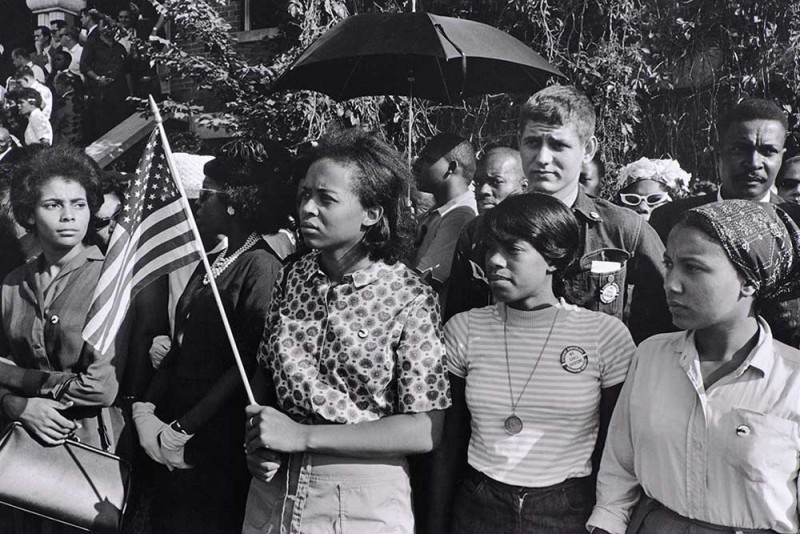STARTS
2013-11-22 00:00:00
Ends
2014-05-18 23:59:59
Location
History and Hope
History and Hope: Celebrating the Civil Rights Movement
“In 1952, I was home on leave from the Air Force and went to Kresge’s in my uniform for lunch. I took a seat at the front of the lunch counter, and the young lady working there had to get permission from her boss to serve me.”
– Chester Owens, Historian of Kansas City, KS
This exhibition was created in collaboration with the American Jazz Museum and the Black Archives of Mid- America in Kansas City to celebrate the 50th anniversary of the March on Washington in August 1963 and the signing of the Civil Rights Act in June 1964.
It showcases the work of artists and musicians who were pivotal in the struggle for human equality and racial harmony, and those who remain influenced by the movement today.

Kansas City Remembers
Labels in the exhibition are personal responses and evoked memories by Kansas City artists, musicians and activists. Here are a few samples
“Sure there were days when we wanted to go to places like Fairyland Park, but there was only one day in the summer that they allowed blacks. But my father Jay McShann and his band could play there any day. At that time, we didn’t think a lot about it, we didn’t get mad about it because we were happy to go that one day.”
– Jayne McShann, Daughter of Jay McShann
“In law school I joined a group called the Third World Caucus, which consisted of Native American, Latino and African-American law students. One time, when I was on my way to a meeting, a couple of white law students stopped and asked me if they could come along. I didn’t see why not. We walked into the room and the meeting stopped. The white students were turned away. That was a lost opportunity to build bridges. Everybody we convert to an attitude of “we’re all the same and we’re all working together,” is one less person we ever have to fear as an enemy.”
– Mayor Sly James, Kansas City, MO
“What I see today is a lot different. The younger generation doesn’t have the same experience of the two Americas that I saw growing up. I see a hope there. Because of what we went through and the people who died before us, younger people today can dream higher. They don’t have to stand up and fight for a cause. They can be the progress.”
– Michael Brantley, Visual Artist